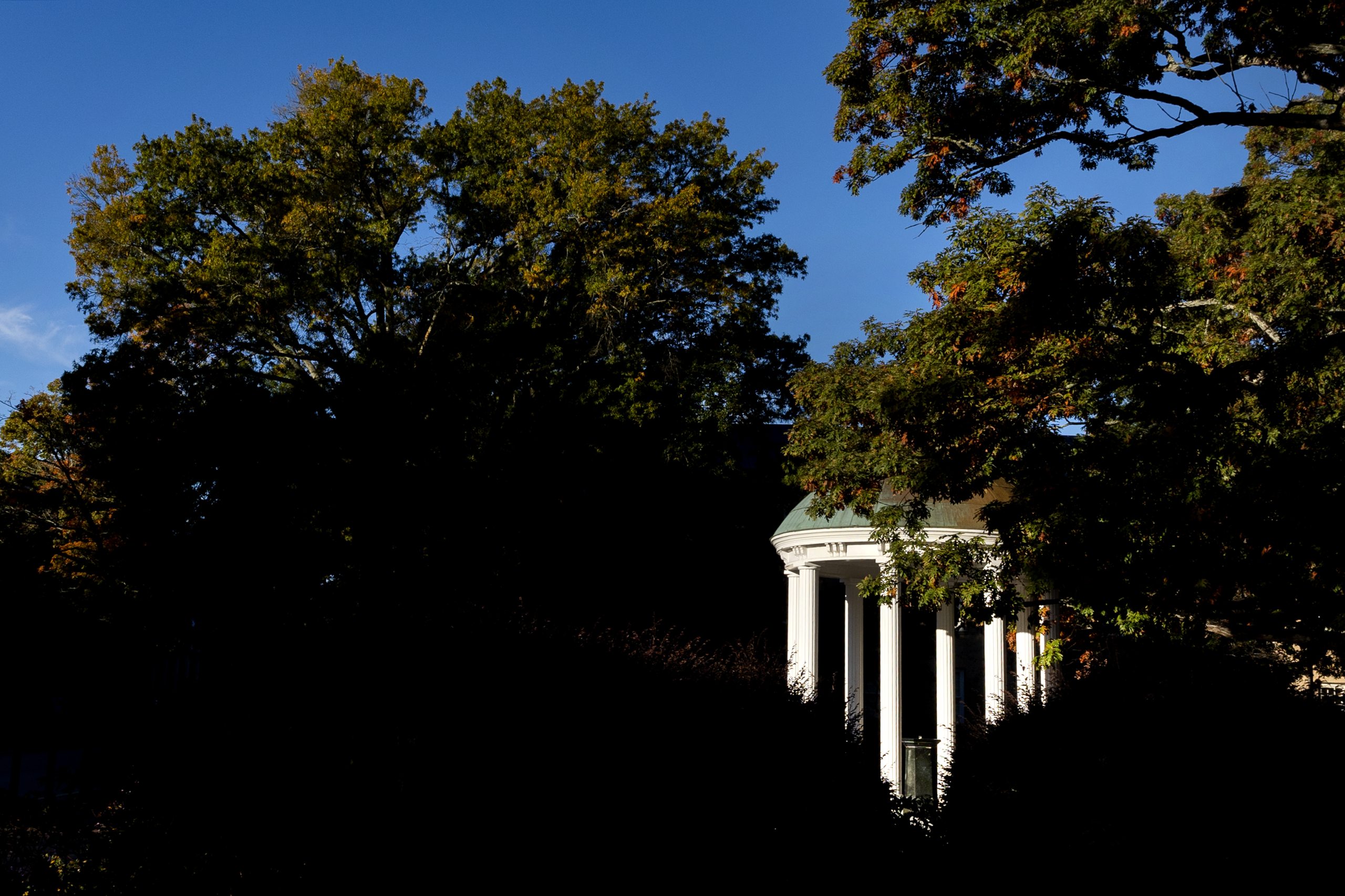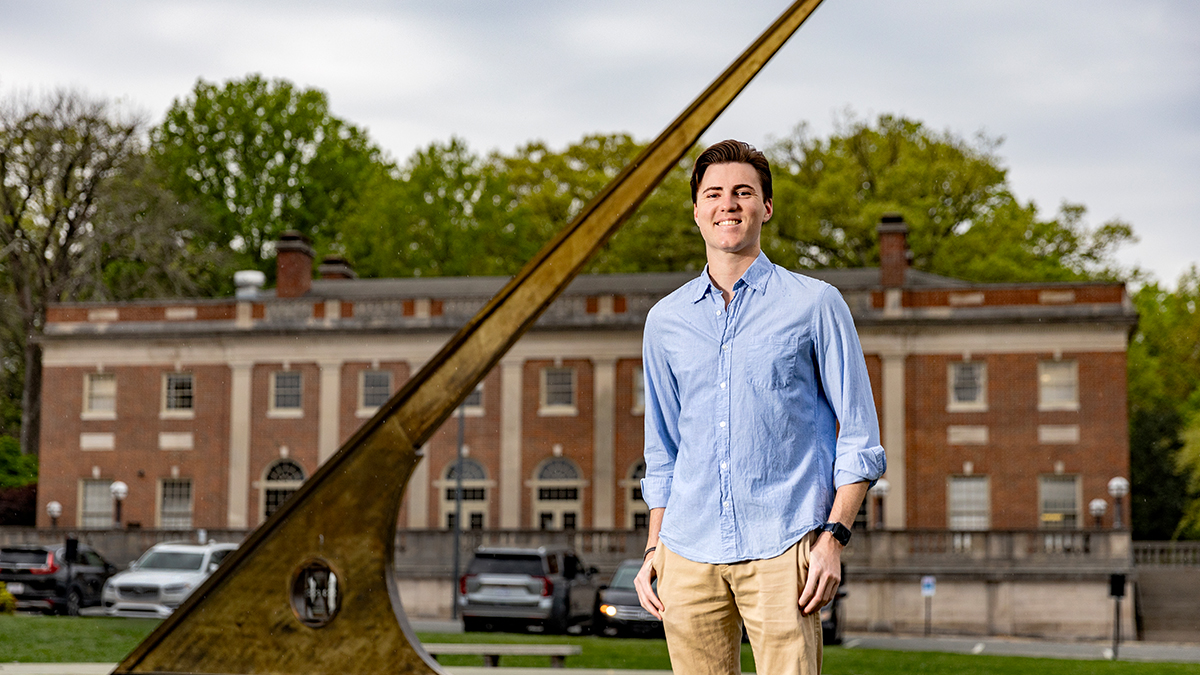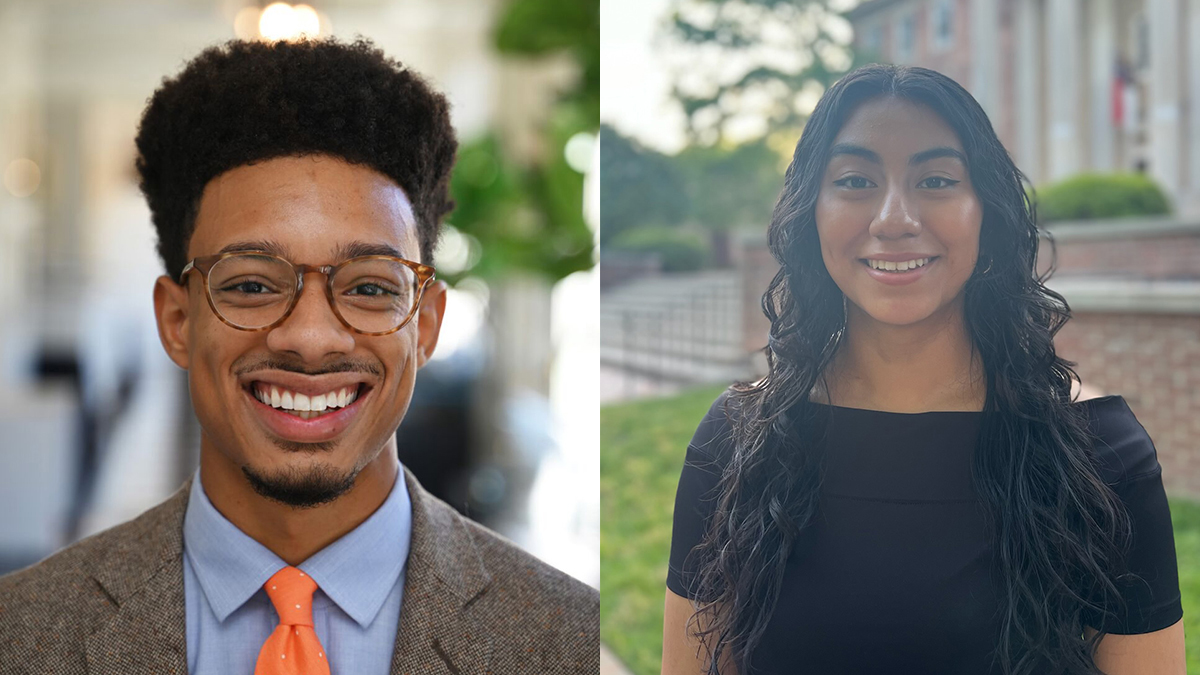MLK Unsung Heroes live diversity principles
Award winners E. Nathan Thomas III and Kellye Whitaker build community in their work each day.
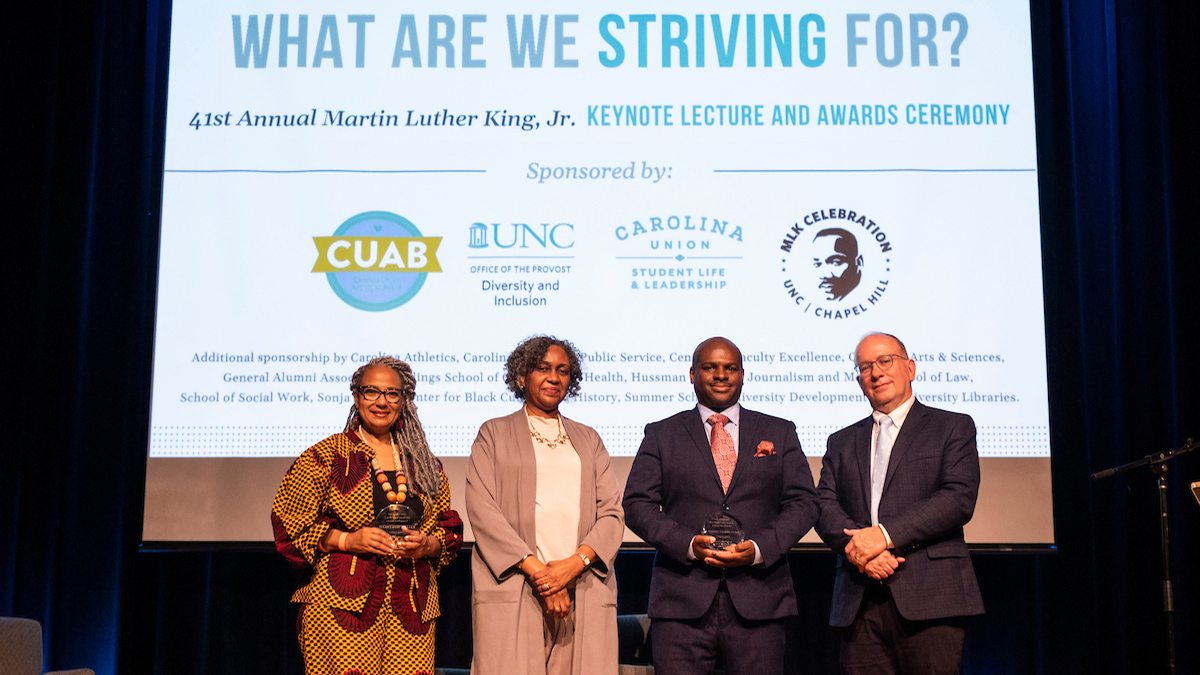
The 2022 Martin Luther King Unsung Heroes want others to know that diversity, equity and inclusion are principles for living.
“Dr. King sacrificed so much to open doors for everyone,” said Kellye Whitaker, NCGrowth-SmartUp program manager at the Kenan Institute of Private Enterprise. She lives each day guided by one of her favorite King quotes: “Whatever affects one directly, affects all indirectly. I can never be what I ought to be until you are what you ought to be. This is the interrelated structure of reality.”
Whitaker and E. Nathan Thomas III, vice dean for diversity, equity and inclusion at the School of Medicine, received their awards Tuesday evening at the MLK Lecture and Awards ceremony in the Great Hall. The omicron surge caused the postponement of the original Jan. 19 event.
The MLK Unsung Hero Awards go to staff or faculty members who show commitment to inclusion every day.
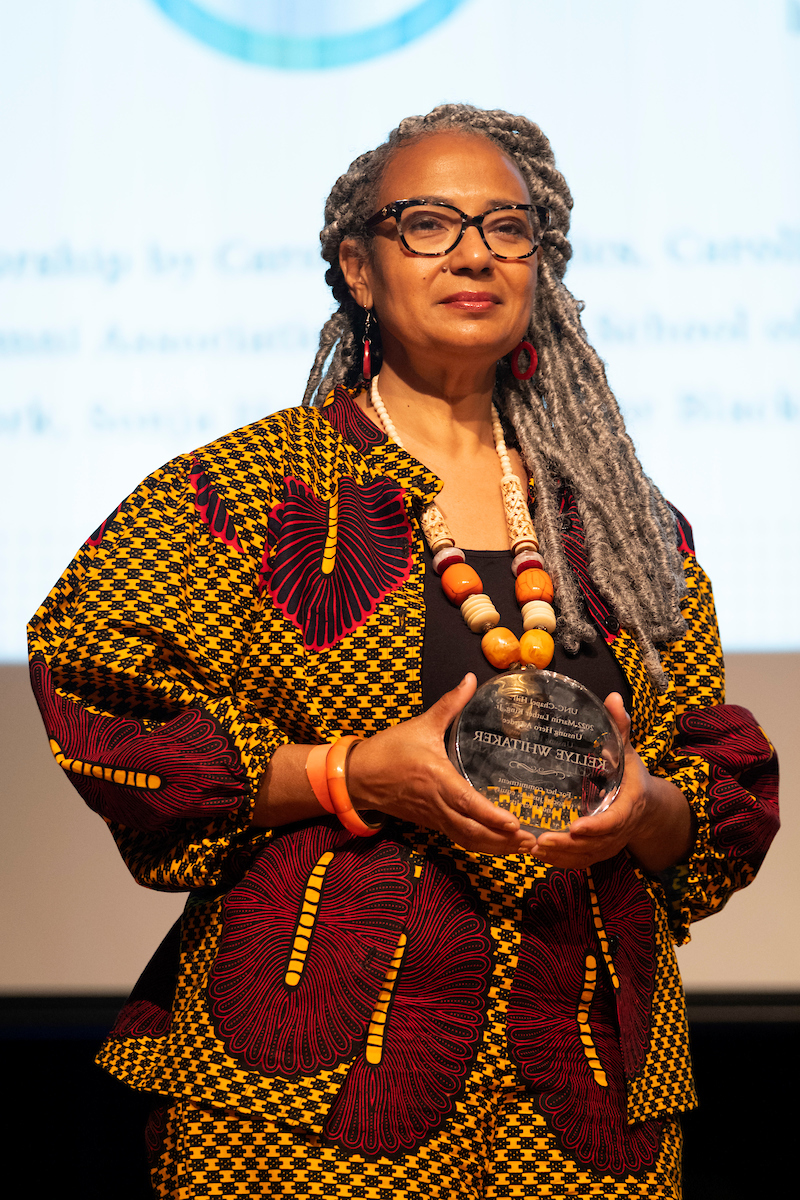
Kellye Whitaker (Jon Gardiner/UNC-Chapel Hill)
Kellye Whitaker
Whitaker launched NCGrowth-SmartUp in the Lowcountry of South Carolina. The program expands local businesses, creates jobs and improves rural economies. Before the pandemic, “I was 100% remote from year one,” said Whitaker. She sometimes travels to Chapel Hill for work, but she lives full time in Walterboro, South Carolina, about 30 minutes from Charleston.
She’s a native of the Lowcountry area, so she’s familiar with its economic challenges. Through SmartUp, Whitaker helps connect rural businesses to the resources they need to not just survive but thrive. Whitaker also mentors graduate and doctoral students, hiring them as student analysts to provide consulting and subject matter expertise to clients.
“Being from the outside looking in, I did not see as much diversity as I would like,” Whitaker said. She made it a point to find opportunities to work with minority students and to add minority clients. That took grassroots work and building relationships within the community. As she knew, businesses that most needed help were often least likely to know where to get it or how to access it.
Whitaker owes her success to relationships and engagement, she said. The Clemson Career Workshop, a summer diversity program, brought her to that campus when she was in the 10th and 11th grades. The people she met through the program helped her feel welcome when she returned to get her bachelor’s degree in industrial management. She went on to earn a master of business administration from Clark Atlanta University and a master in instructional design and technology from Georgia State University.
Now she passes on the help she received by serving on the diversity and inclusion committee at the Kenan Institute. Even though she’s rarely on campus, “I do care about policies, and I support the staff and students as they try to figure all that out,” she said. “Dr. King would want to see us providing access to everyone and a creating a level playing field.”
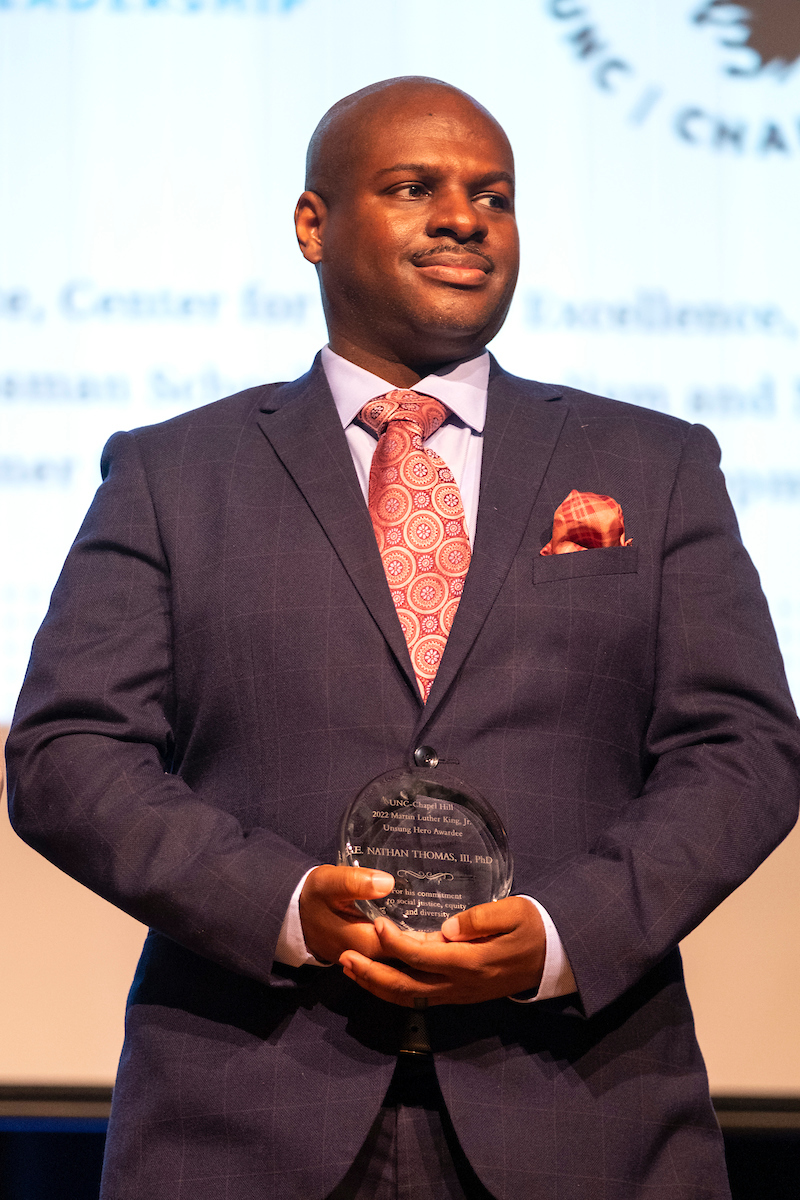
E. Nathan Thomas III (Jon Gardiner/UNC-Chapel Hill)
E. Nathan Thomas III
Community building and system change is at the heart of Thomas’ education and 25 years of work experience. He has bachelor’s and master’s degrees in clinical/community psychology from Norfolk State University in Virginia and a doctorate in ecological community psychology from Michigan State University. Before coming to Carolina in 2020, Thomas was an executive diversity leader at the University of Kansas and the University of Missouri-Kansas City School of Medicine. The UMKC school of medicine received a 2018 Higher Education Excellence in Diversity Award.
Thomas wanted to build the same kind of community here at the UNC School of Medicine. “My vision is on structure and strategy and creating a DEI culture,” he said. “We’re infusing DEI into the fabric of the School of Medicine and the institution. And out of that comes our different initiatives.”
One of his key initiatives is a mentoring program called Students in Training, Academia, Health and Research. STAHR increases the success of underrepresented students and trainees, leading to more diversity in hospitals and faculty in medical schools. In its first year at UNC, more than 100 faculty members, trainees, and basic science and medical students participated in the STAHR program.
The mentors are benefitting as much as the students, Thomas said. “The faculty say, ‘I know the program is focused on the students and trainees, but it has done so much for me. It’s created that space where I feel a sense of community and valued.’”
His work took on special significance during the pandemic and in the wake of police violence against Black citizens. Both situations affected the physical and mental health of the Black community.
“I’m just so thankful for our leaders, our students, our trainees, our faculty and our staff that continue to move DEI forward,” Thomas said. “As we continue to move the vision of MLK forward, this is how we become prevention focused. As we grow as a diverse society, we have to think about things that we’re missing or not thinking about. Because when we leave out the diverse experiences of people in our thought process, it leads to a lack of awareness and marginalization. It leads to unhealthy work and learning environments.”
